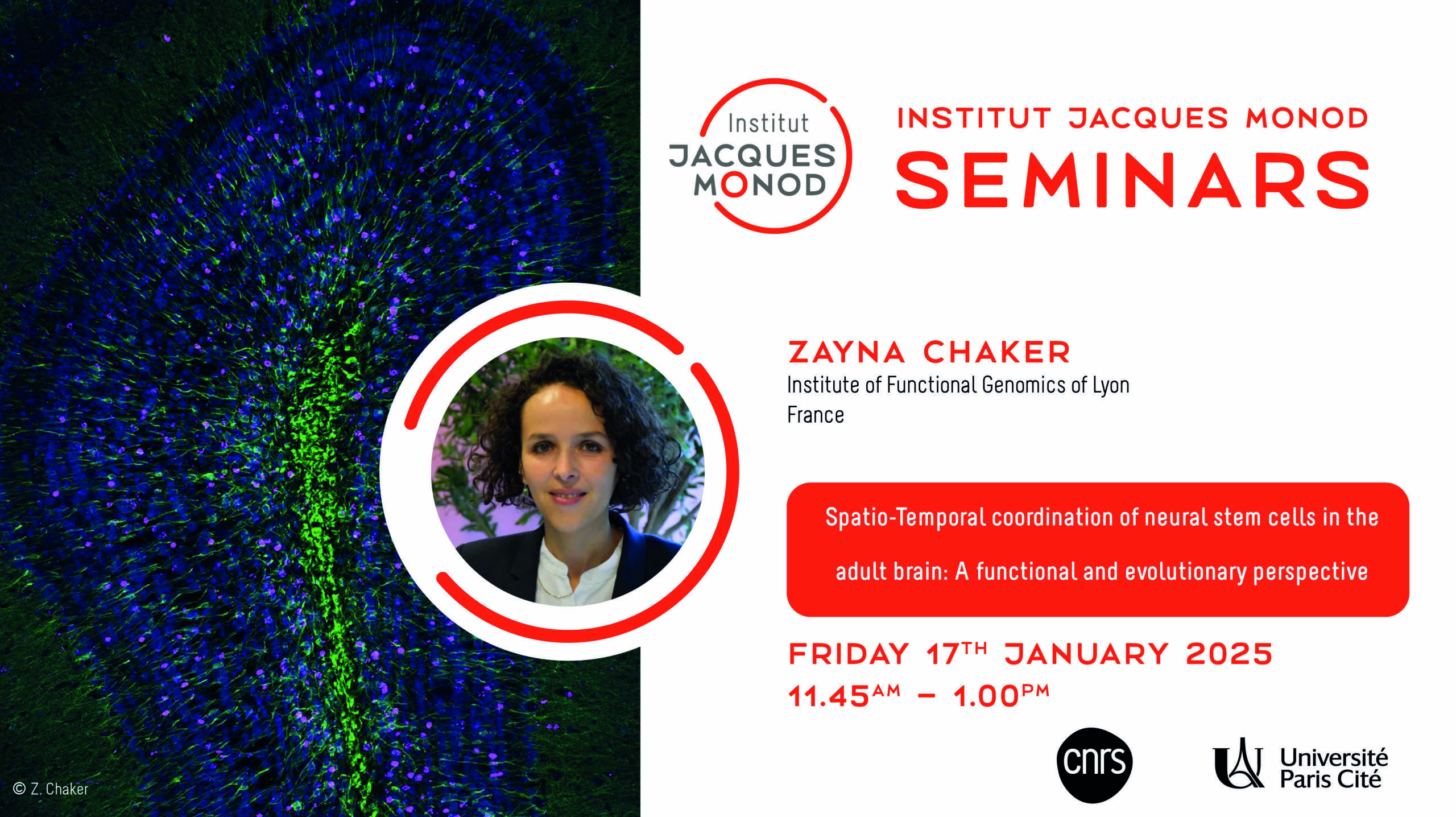
- Cet évènement est passé.
Séminaire de l’Institut Jacques Monod – Zayna Chaker
17 janvier 2025 - 11 h 45 min - 13 h 00 min

Invitée par l’équipe Konstantinides, Zayna Chaker (Institute of Functional Genomics of Lyon (IGFL) Ens de Lyon, CNRS) va présenter un Séminaire de l’Institut Jacques Monod sur le thème :
Spatio-Temporal coordination of neural stem cells in the adult brain: A functional and evolutionary perspective
Résumé :
Research over the last three decades has demonstrated that new neurons can be generated in the adult brain, and integrate into pre-existing complex circuits. The process of adult neurogenesis is evolutionary conserved among vertebrates, including fishes, frogs, reptiles, birds, rodents and primates. It is sustained by a small population of undifferentiated cells, called neural stem cells (NSCs), which persist as embryonic vestiges in adult brains. These cells reside in tightly controlled micro-environments called niches. The addition of young cells constitutes an important layer of adult brain plasticity, further enhancing its ability to adapt to diverse life experiences. However, the physiological relevance of adult-born neurons as well as the regenerative power of NSCs after injury are still highly debated to date, especially in mammals.
Besides constitutive neurogenesis, we recently showed that regionally-defined subpopulations of NSCs in the adult ventricular niche produce transient waves of functionally-relevant interneurons in response to pregnancy and motherhood. This process finely tunes the mother’s olfactory sensitivity to own versus alien pup odor (Chaker et al. 2023). In my lab, we are now investigating the cellular and molecular mechanisms allowing regionally-distinct pools of NSCs to coordinate their behavior in space (across all niches) and time (from embryo to different phases in adulthood), under specific physiological and pathological conditions.

